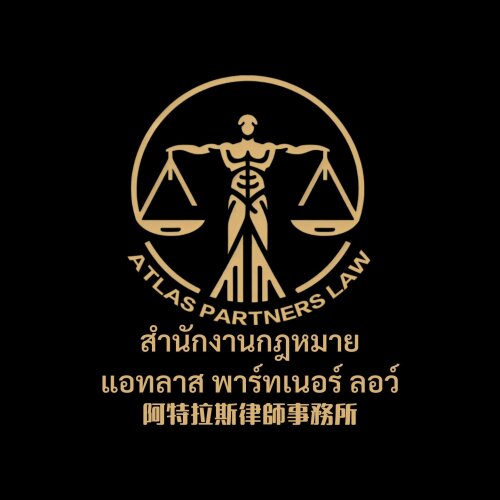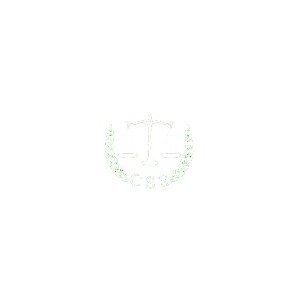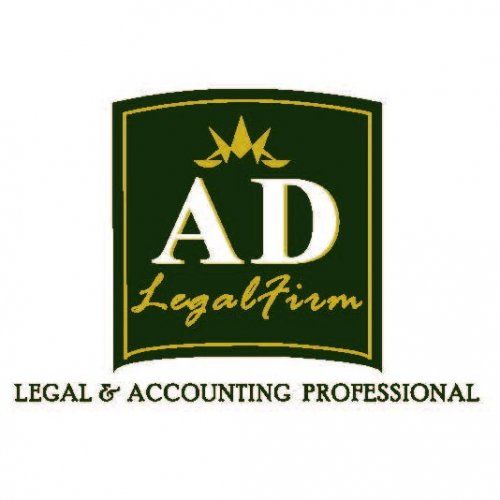ทนายความ การอนุญาต ที่ดีที่สุดใน เชียงใหม่
แบ่งปันความต้องการของคุณกับเรา รับการติดต่อจากสำนักงานกฎหมาย
ฟรี ใช้เวลา 2 นาที
รายชื่อทนายความที่ดีที่สุดใน เชียงใหม่, ประเทศไทย
คู่มือกฎหมายเขียนโดย SIAM LEGAL INTERNATIONAL:
- Defamation Laws in Thailand: Criminal Charges and Civil Suits
- The State of Thailand’s Long-Term Resident (LTR) Visa Program in 2025
- The Penalties Of Not Filing Your Income Tax Return As A Foreigner In Thailand
ประเทศไทย การอนุญาต คำถามทางกฎหมายที่ตอบโดยทนายความ
เรียกดู คำถามทางกฎหมาย 2 ข้อ ของเรา เกี่ยวกับ การอนุญาต ใน ประเทศไทย และอ่านคำตอบจากทนายความ หรือถามคำถามของคุณเองได้ฟรี.
- การสอบถามเกี่ยวกับข้อกำหนดใบอนุญาตสำหรับเครื่องเอทีเอ็มสกุลเงินดิจิทัลในประเทศไทย
- ฉันขอสอบถามเกี่ยวกับข้อกำหนดใบอนุญาตเฉพาะสำหรับการดำเนินงานตู้เอทีเอ็มคริปโตเคอร์เรนซีในประเทศไทย คุณสามารถให้ข้อมูลโดยละเอียดเกี่ยวกับประเภทใบอนุญาตที่ผู้ให้บริการตู้เอทีเอ็มคริปโตเคอร์เรนซีจำเป็นต้องยื่นขอได้หรือไม่
-
คำตอบจากทนายความ โดย Mahanakorn Partners Group Co., Ltd
เรียน ลูกค้าที่คาดหวัง,ขอขอบคุณที่ติดต่อสอบถามเกี่ยวกับข้อกำหนดด้านใบอนุญาตในการดำเนินการตู้เอทีเอ็มสกุลเงินดิจิทัลในประเทศไทยเพื่อดำเนินการตู้เอทีเอ็มสกุลเงินดิจิทัลในประเทศไทย ผู้ประกอบการต้องปฏิบัติตามข้อบังคับเฉพาะที่ออกโดยสำนักงานคณะกรรมการกำกับหลักทรัพย์และตลาดหลักทรัพย์ (ก.ล.ต.) ของประเทศไทย ใบอนุญาตหลักที่ผู้ประกอบการตู้เอทีเอ็มสกุลเงินดิจิทัลต้องยื่นขอคือ ใบอนุญาตประกอบธุรกิจสินทรัพย์ดิจิทัล ใบอนุญาตนี้อนุญาตให้ผู้ประกอบธุรกิจทำหน้าที่เป็นศูนย์ซื้อขายสกุลเงินดิจิทัล นายหน้า หรือผู้ค้า ซึ่งทั้งหมดนี้อาจมีความเกี่ยวข้องขึ้นอยู่กับบริการที่ตู้เอทีเอ็มให้บริการนอกจากนี้ ยังมีมาตรการการปฏิบัติตามข้อกำหนดที่เข้มงวดเกี่ยวกับ การป้องกันการฟอกเงิน (AML) และ การรู้จักลูกค้า (KYC) ที่ต้องปฏิบัติตามตามกฎหมายไทยสำหรับภาพรวมที่ครอบคลุมของข้อบังคับเกี่ยวกับสินทรัพย์ดิจิทัลในประเทศไทย รวมถึงตู้เอทีเอ็มสกุลเงินดิจิทัล ขอเชิญเยี่ยมชมเว็บไซต์ของเราเพื่อดูข้อมูลเชิงลึกอย่างละเอียด:ข้อบังคับด้านสินทรัพย์ดิจิทัลในประเทศไทย: ภาพรวมอย่างครบถ้วน https://mahanakornpartners.com/digital-asset-regulations-in-thailand-a-comprehensive-overview/หากท่านมีคำถามเพิ่มเติมหรือต้องการความช่วยเหลือเฉพาะทางเพิ่มเติม โปรดติดต่อสอบถามได้เสมอด้วยความเคารพอย่างสูง,กลุ่มเมฆนาคร (MPG)
อ่านคำตอบฉบับเต็ม - เอกสารที่ต้องใช้ในการขอใบอนุญาตแอลกอฮอล์ในประเทศไทยมีอะไรบ้าง
- ฉันต้องการเปิดบาร์ชายหาดขนาดเล็กและร้านอาหารในภูเก็ต ฉันสามารถขอใบอนุญาตจำหน่ายเครื่องดื่มแอลกอฮอล์ได้อย่างไร และต้องเตรียมเอกสารอะไรบ้าง?
-
คำตอบจากทนายความ
เพื่อให้การขอใบอนุญาตจำหน่ายแอลกอฮอล์ในประเทศไทยประสบผลสำเร็จ คุณจะต้องมีเอกสารดังต่อไปนี้: 1. เอกสารการจดทะเบียนของบริษัทของคุณ; 2. สัญญาเช่าหรือสัญญาเช่าช่วง; 3. หลักฐานแสดงที่ตั้งธุรกิจที่คุณประสงค์จะขอใบอนุญาตแอลกอฮอล์; 4. หนึ่งในเอกสารต่อไปนี้หรือมากกว่า: 4.1 สำเนาทะเบียนบ้านของเจ้าของร้านอาหาร/บาร์; 4.2 หนังสือมอบอำนาจจากผู้ให้เช่าสถานที่; 4.3 เอกสารประจำตัวของผู้ถือใบอนุญาตหรือเอกสารอื่น ๆ
อ่านคำตอบฉบับเต็ม
1. เกี่ยวกับกฎหมายการอนุญาตในเชียงใหม่, ประเทศไทย
การอนุญาตในเชียงใหม่ต้องอ้างอิงทั้งกฎหมายระดับชาติและกฎหมายท้องถิ่น ความสมบูรณ์ของเอกสารสำคัญจึงเป็นส่วนสำคัญของกระบวนการอนุมัติ
ในระดับชาติ กฎหมายหลักที่ควรรู้มีทั้งพระราชบัญญัติควบคุมอาคาร พ.ศ. 2522 และพระราชบัญญัติการผังเมือง พ.ศ. 2518 ซึ่งกำหนดหลักเกณฑ์การออกใบอนุญาตและการใช้งานพื้นที่
กฎหมายท้องถิ่นในเชียงใหม่ มักถูกรับรองผ่านเทศบาลนครเชียงใหม่และสำนักงานจังหวัดเชียงใหม่ ซึ่งออกระเบียบและประกาศเพิ่มเติมเพื่อให้สอดคล้องกับสภาพเมืองท่องเที่ยวและเมืองเก่า
ดังนั้น ผู้ขออนุญาตในเชียงใหม่ควรตรวจสอบทั้งกฎหมายระดับชาติและข้อกำหนดท้องถิ่นเพื่อหลีกเลี่ยงข้อผิดพลาดในการยื่นคำร้อง
2. ทำไมคุณอาจต้องการทนายความ
สถานการณ์ที่เป็นรูปธรรมในเชียงใหม่ เช่น การปรับปรุงอาคารในเขตเมืองเก่า ต้องขออนุญาตจากเทศบาลและกรมโยธาธิการ ทนายความช่วยตรวจเอกสารและประสานงานกับหน่วยงาน
กรณีเปิดร้านอาหารในย่านท่องเที่ยว ต้องการใบอนุญาตประกอบกิจการอาหารจากสำนักงานสาธารณสุขจังหวัดเชียงใหม่ และอาจมีข้อกำหนดเรื่องสุขาภิบาล พนักงาน และพื้นที่จำหน่ายอาหาร
กรณีติดตั้งป้ายโฆษณหรือร้านค้าบนทางเท้า จะเกี่ยวข้องกับระเบียบของเทศบาลในการออกใบอนุญาตติดตั้งป้ายและการใช้พื้นที่สาธารณะ ทนายช่วยตรวจความสอดคล้องกับข้อบังคับ
กรณีจัดงานกลางแจ้งหรืองานเทศกาล ในเชียงใหม่ต้องขออนุญาตจากหน่วยงานท้องถิ่น ทนายความช่วยเตรียมคำร้อง และประเมินค่าใช้จ่ายและระยะเวลา
กรณีเปลี่ยนการใช้อาคารจากที่อยู่อาศัยเป็นเพื่อการพาณิชย์ ต้องการแนวทางจากผู้เชี่ยวชาญเพื่อติดตามการอนุมัติตามผังเมืองและข้อกำหนดอาคาร
หากคุณเป็นผู้อยู่อาศัยเชียงใหม่ การมีทนายความช่วยเหลือจะช่วยลดความเสี่ยงจากการยื่นเอกสารไม่ครบถ้วน หรือการสื่อสารที่ผิดพลาดกับหน่วยงาน
3. ภาพรวมกฎหมายท้องถิ่น
กฎหมายท้องถิ่นที่ครอบคลุมการอนุญาตในเชียงใหม่ประกอบด้วยข้อกำหนดจากเทศบาลนครเชียงใหม่และจังหวัดเชียงใหม่ สำหรับการออกใบอนุญาตอาคารและการใช้งานพื้นที่
กฎหมายหลักที่ใช้งานทั่วไป ได้แก่ พระราชบัญญัติควบคุมอาคาร พ.ศ. 2522 และพระราชบัญญัติการผังเมือง พ.ศ. 2518 ซึ่งกำหนดกรอบการออกใบอนุญาตและข้อจำกัดการใช้งานพื้นที่
นอกจากนี้ บางกรณีการออกใบอนุญาตจะขึ้นกับระเบียบท้องถิ่นของเทศบาลนครเชียงใหม่ เช่น การออกใบอนุญาตประกอบกิจการ การติดตั้งป้าย และการใช้งานทางเท้าในเขตเมืองเก่า
4. คำถามที่พบบ่อย
อะไรคือใบอนุญาตสำคัญที่ต้องมีเมื่อก่อสร้างอาคาร?
ใบอนุญาตก่อสร้างจากหน่วยงานท้องถิ่นเป็นสิ่งจำเป็น ก่อนเริ่มการก่อสร้าง องค์กรจะตรวจแบบแปลนและความปลอดภัยของอาคาร
ฉันจะเริ่มกระบวนการขอใบอนุญาตก่อสร้างได้อย่างไร?
เริ่มจากตรวจสอบพื้นที่กับผังเมือง ตรวจสอบเอกสารพื้นที่ และติดต่อเทศบาลหรือสำนักงานจังหวัดเชียงใหม่เพื่อยื่นคำร้อง
ใบอนุญาตประกอบกิจการอาหารจำเป็นต้องใช้เอกสารอะไรบ้าง?
ต้องมีเอกสารสุขาภิบาลจากสาธารณสุขจังหวัดเชียงใหม่ พร้อมใบอนุญาตสถานที่จำหน่ายอาหารและมาตรฐานความปลอดภัย
ค่าธรรมเนียมออกใบอนุญาตประมาณเท่าไร?
ค่าธรรมเนียมขึ้นกับชนิดโครงการ ขนาดพื้นที่ และหน่วยงานที่ออกใบอนุญาต โดยทั่วไปมีหลายระดับตั้งแต่หลายพันถึงหลายหมื่นบาท
ระยะเวลาการพิจารณาใบอนุญาตเป็นอย่างไร?
ระยะเวลาขึ้นกับประเภทใบอนุญาตและความซับซ้อนของโครงการ โดยทั่วไปอยู่ในช่วงหลายสัปดาห์ถึงหลายเดือน
ฉันควรมีทนายความช่วยเหลือในกระบวนการนี้ไหม?
หากมีโครงการใหญ่หรือสิทธิประโยชน์สำคัญ การมีทนายความช่วยให้คำแนะนำและตรวจเอกสารช่วยลดความล่าช้าได้
หากคำร้องถูกปฏิเสธ ต้องทำอย่างไร?
คุณสามารถตรวจสอบเหตุผลและยื่นอุทธรณ์หรือแก้ไขข้อเรียกร้อง ซึ่งทนายความจะช่วยในขั้นตอนนี้ได้
ใบอนุญาตมีระยะเวลาหมดอายุหรือไม่?
บางใบอนุญาตมีระยะเวลาจำกัด คุณต้อง renewal ตามข้อกำหนดของหน่วยงานเจ้าของใบอนุญาต
ฉันเป็นชาวต่างชาติ ต้องทำอะไรเพิ่มเติม?
ผู้ต่างชาติอาจต้องมีเอกสารยืนยันสัญชาติ การมีถิ่นที่อยู่และสถานะการทำงานที่ถูกต้อง ตามข้อกำหนดของหน่วยงานท้องถิ่น
การขออนุญาตในเชียงใหม่ต่างจากกรุงเทพฯ อย่างไร?
หลักการพื้นฐานคล้ายกัน แต่เชียงใหม่มีข้อกำหนดด้านสภาพพื้นที่ท่องเที่ยวและการอนุรักษ์อาคารเก่าที่อาจเพิ่มขั้นตอนพิจารณา
รูปแบบคำร้องและเอกสารต้องเตรียมอย่างไร?
เตรียมแบบฟอร์มคำร้อง เอกสารแสดงที่ดิน ภาพถ่ายมุมต่างของพื้นที่ แผนผัง และเอกสารประกอบการยื่นตามที่หน่วยงานระบุ
ควรตรวจสอบอะไรเป็นพิเศษก่อนยื่น?
ตรวจความถูกต้องของชื่อผู้ยื่น ที่อยู่ และลายเซ็น พร้อมเอกสารประกอบเพื่อป้องกันการปฏิเสธคุณสมบัติ
5. ทรัพยากรเพิ่มเติม
- ราชกิจจานุเบกษา เว็บไซต์ทางการสำหรับบทกฎหมายและร่างกฎหมายที่บังคับใช้ในประเทศไทย เช่น พระราชบัญญัติควบคุมอาคาร
- กระทรวงมหาดไทย เว็บไซต์ผู้กำกับดูแลการออกใบอนุญาตและระเบียบท้องถิ่นในจังหวัดทั่วประเทศ
- กรมส่งเสริมการปกครองท้องถิ่น แหล่งข้อมูลเกี่ยวกับการจัดการการอนุญาตในระดับท้องถิ่น
ลิงก์อ้างอิงที่เชื่อถือได้
กรมธรรมนูญและระเบียบข้อบัญญัติท้องถิ่นจะกำหนดขั้นตอนและข้อกำหนดการออกใบอนุญาตอย่างเป็นทางการ
สำหรับแหล่งข้อมูลออนไลน์เพิ่มเติม ควรตรวจสอบกับหน่วยงานท้องถิ่นเชียงใหม่โดยตรงเพื่อข้อมูลล่าสุด
6. ขั้นตอนถัดไป
- ระบุประเภทอนุญาตที่ต้องขอในกรณีของคุณ and ขอบเขตพื้นที่ที่เกี่ยวข้อง
- ตรวจสอบพื้นที่และผังเมืองของเชียงใหม่เพื่อทราบข้อจำกัด
- รวบรวมเอกสารสำคัญทั้งหมด เช่น โฉนดที่ดิน แบบแปลน และแผนงาน
- ปรึกษาทนายความหรือที่ปรึกษากฎหมายเพื่อประเมินความคุ้มค่าและความเสี่ยง
- ยื่นคำร้องอย่างเป็นทางการต่อหน่วยงานที่เกี่ยวข้อง พร้อมเอกสารครบถ้วน
- ติดตามสถานะการพิจารณา และตอบข้อเรียกร้องตามที่หน่วยงานร้องขอ
- เมื่ออนุมัติแล้ว ดำเนินการติดตามการปฏิบัติตามเงื่อนไขและการ renew ใบอนุญาต
Lawzana ช่วยคุณค้นหาทนายความและสำนักงานกฎหมายที่ดีที่สุด ใน เชียงใหม่ ผ่านรายชื่อผู้เชี่ยวชาญด้านกฎหมายที่มีคุณสมบัติเหมาะสมที่คัดสรรและตรวจสอบล่วงหน้า แพลตฟอร์มของเรานำเสนอการจัดอันดับและโปรไฟล์โดยละเอียดของทนายความและสำนักงานกฎหมาย ช่วยให้คุณเปรียบเทียบตามสาขากฎหมาย รวมถึง การอนุญาต ประสบการณ์ และความคิดเห็นของลูกค้า
แต่ละโปรไฟล์ประกอบด้วยคำอธิบายเกี่ยวกับสาขากฎหมายของสำนักงาน รีวิวจากลูกค้า สมาชิกในทีมและหุ้นส่วน ปีที่ก่อตั้ง ภาษาที่พูด ที่ตั้งสำนักงาน ข้อมูลการติดต่อ การมีตัวตนบนโซเชียลมีเดีย และบทความหรือแหล่งข้อมูลที่เผยแพร่ สำนักงานส่วนใหญ่บนแพลตฟอร์มของเราพูดภาษาอังกฤษและมีประสบการณ์ทั้งในเรื่องกฎหมายท้องถิ่นและระหว่างประเทศ
ขอใบเสนอราคาจากสำนักงานกฎหมายชั้นนำ ใน เชียงใหม่, ประเทศไทย — รวดเร็ว ปลอดภัย และไม่ยุ่งยาก
ข้อจำกัดความรับผิดชอบ:
ข้อมูลที่ให้ไว้ในหน้านี้มีวัตถุประสงค์เพื่อเป็นข้อมูลทั่วไปเท่านั้นและไม่ถือเป็นคำแนะนำทางกฎหมาย แม้ว่าเราจะพยายามตรวจสอบความถูกต้องและความเกี่ยวข้องของเนื้อหา แต่ข้อมูลทางกฎหมายอาจเปลี่ยนแปลงได้ตามกาลเวลา และการตีความกฎหมายอาจแตกต่างกันไป คุณควรปรึกษาผู้เชี่ยวชาญด้านกฎหมายที่มีคุณสมบัติเหมาะสมเพื่อขอคำแนะนำเฉพาะสำหรับสถานการณ์ของคุณเสมอ
เราปฏิเสธความรับผิดทั้งหมดสำหรับการกระทำที่ทำหรือไม่ทำตามเนื้อหาในหน้านี้ หากคุณเชื่อว่าข้อมูลใดไม่ถูกต้องหรือล้าสมัย โปรด contact us และเราจะตรวจสอบและแก้ไขตามความเหมาะสม

















